Lap-Shoulder Belt
The driver has a lap-shoulder belt. Here is how to wear it properly.
- Close and lock the door.
- Adjust the seat so you can sit up straight. To see how, see "Seats" in the Index.
- Pick up the latch plate and pull the belt across you. Do not let it get twisted.
- Push the latch plate into the buckle until it clicks.
- To make the lap part tight, pull up on the shoulder belt.
If the safety belt is not routed through the guide on the head restraint, slide the edge of the belt webbing through the opening on the guide. Be sure the belt is not twisted.
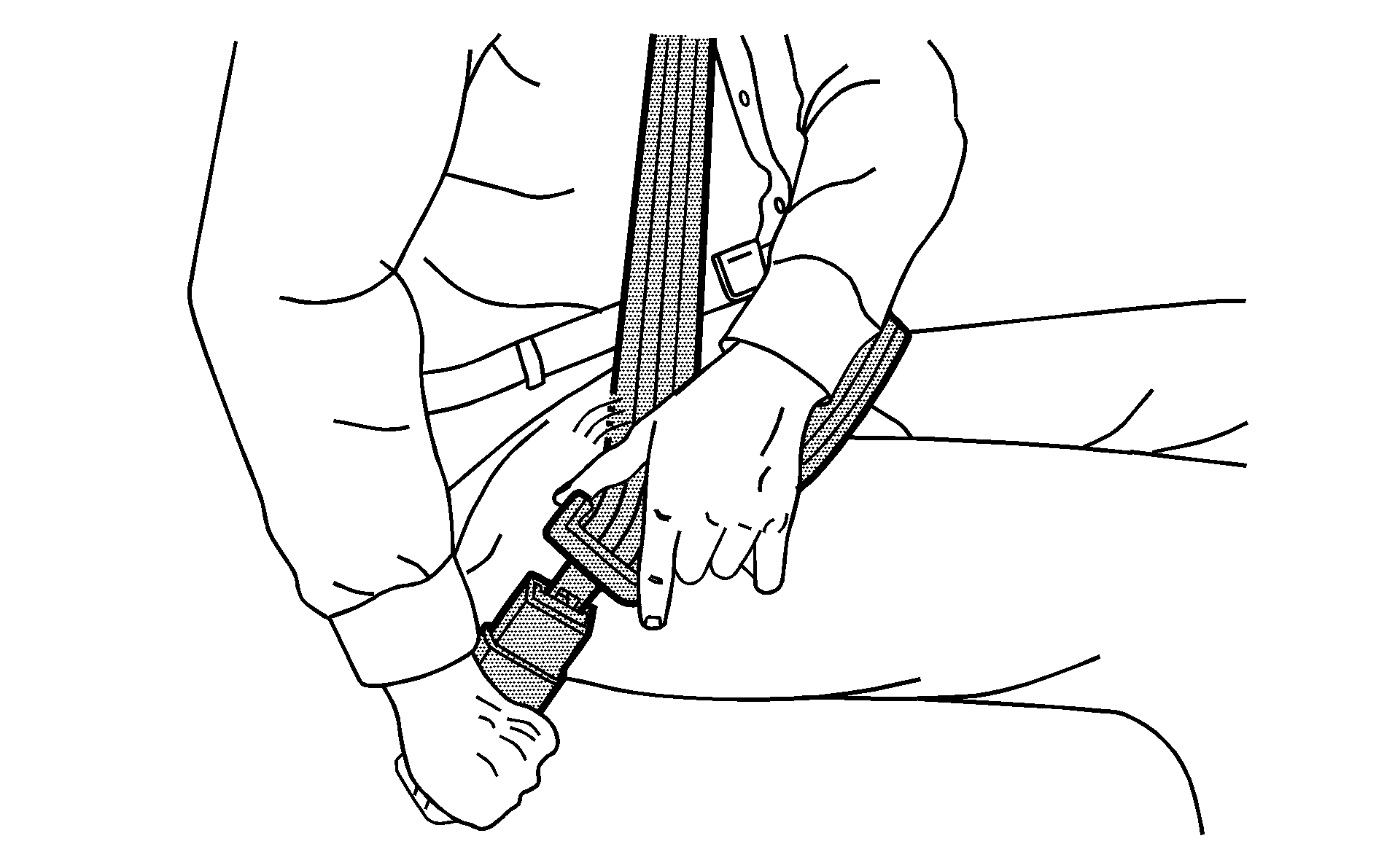
The lap-shoulder belt may lock if you pull the belt across you very quickly. If this happens, let the belt go back slightly to unlock it. Then pull the belt across you more slowly.
Pull up on the latch plate to make sure it is secure. If the belt is not long enough, see Safety Belt Extender .
Make sure the release button on the buckle is positioned so you would be able to unbuckle the safety belt quickly if you ever had to.
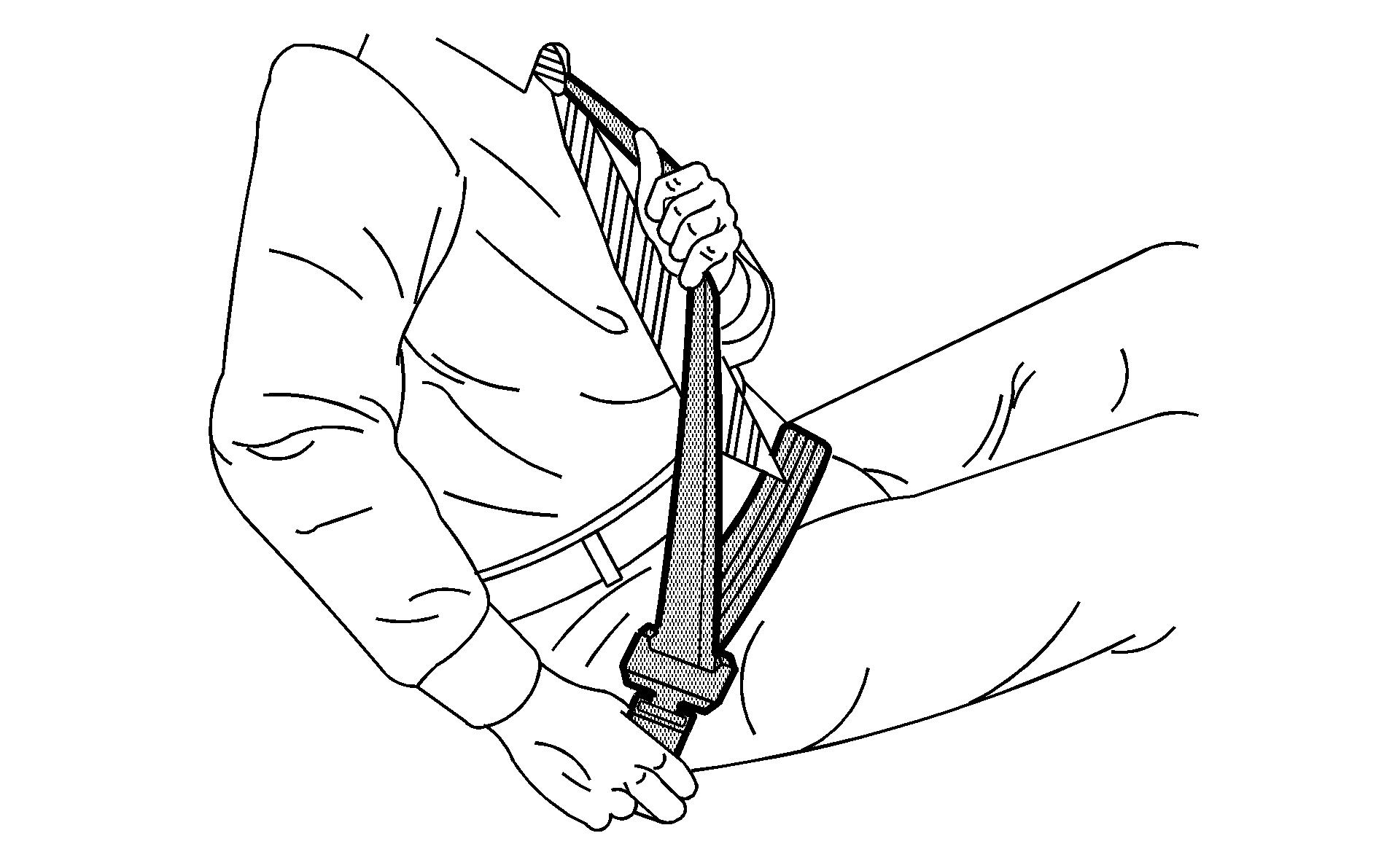
It may be necessary to pull stitching on the safety belt through the latch plate to fully tighten the lap belt on smaller occupants.
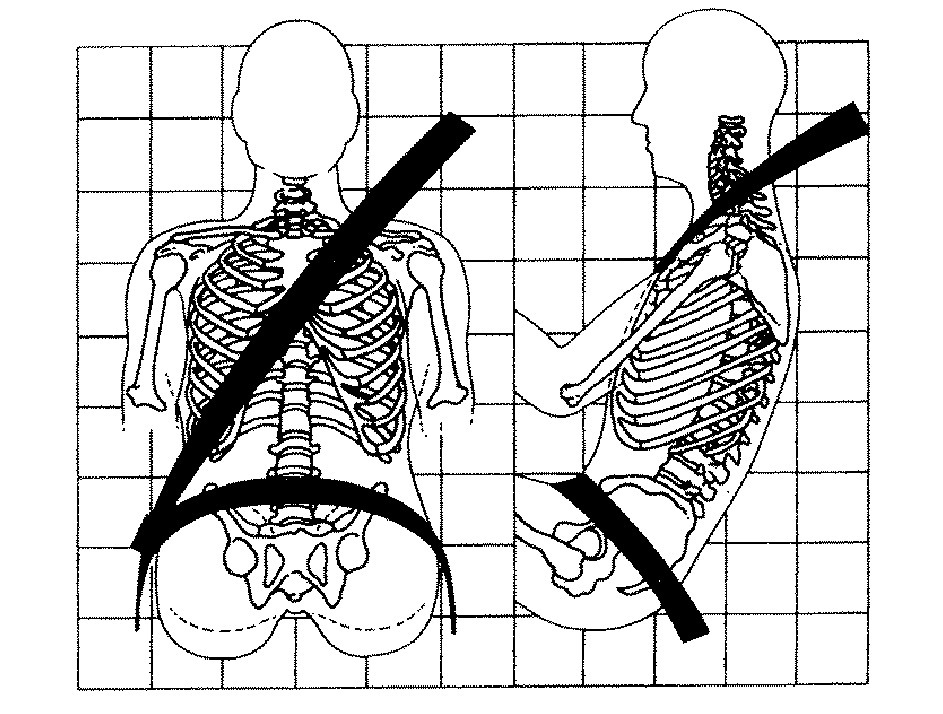
The lap part of the belt should be worn low and snug on the hips, just touching the thighs. In a crash, this applies force to the strong pelvic bones. And you would be less likely to slide under the lap belt. If you slid under it, the belt would apply force at your abdomen. This could cause serious or even fatal injuries. The shoulder belt should go over the shoulder and across the chest. These parts of the body are best able to take belt restraining forces.
The safety belt locks if there is a sudden stop or crash.
Question:
What is wrong with this?
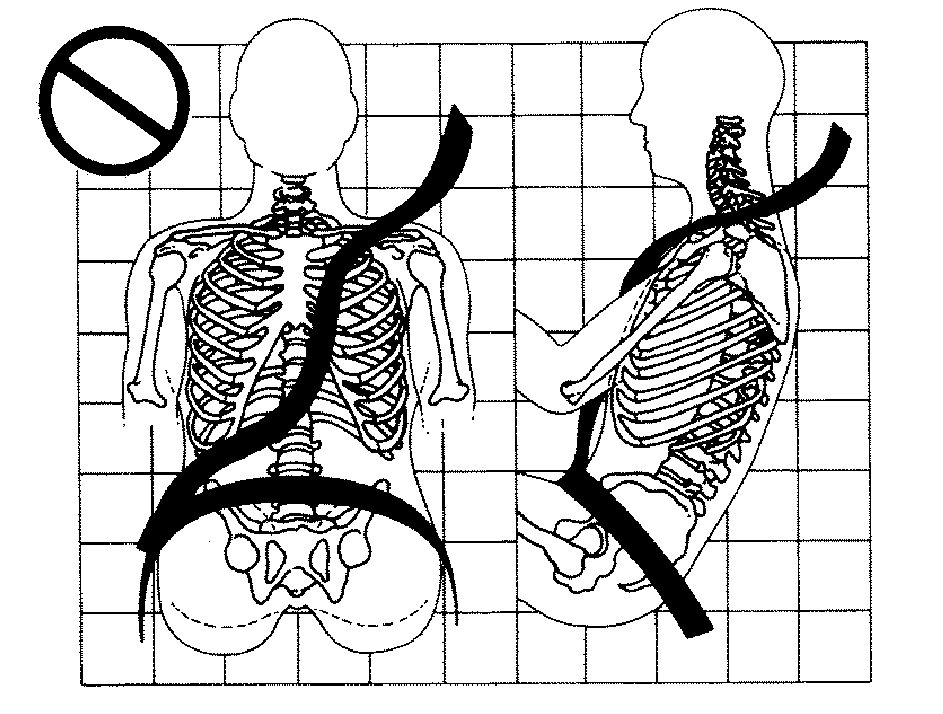
Answer:
The shoulder belt is too loose. It will not give nearly as much protection this way.
Caution: You can be seriously hurt if your shoulder belt is too loose. In a crash, you would move forward too much, which could increase injury. The shoulder belt should fit snugly against your body.
Question:
What is wrong with this?
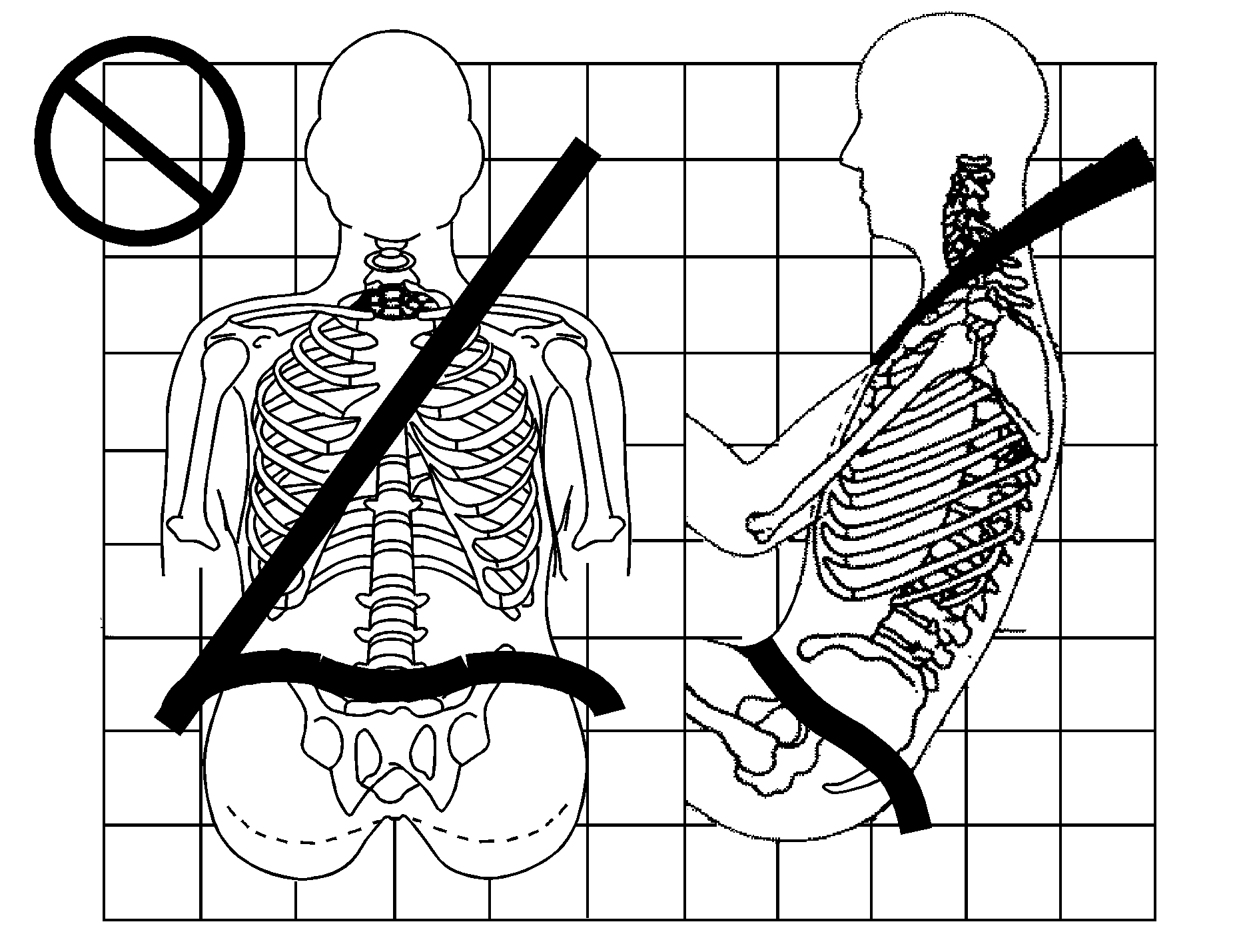
Answer:
The lap belt is too loose. It will not give nearly as much protection this way.
Caution: You can be seriously hurt if your lap belt is too loose. In a crash, you could slide under the lap belt and apply force on your abdomen. This could cause serious or even fatal injuries. The lap belt should be worn low and snug on the hips, just touching the thighs.
Question:
What is wrong with this?
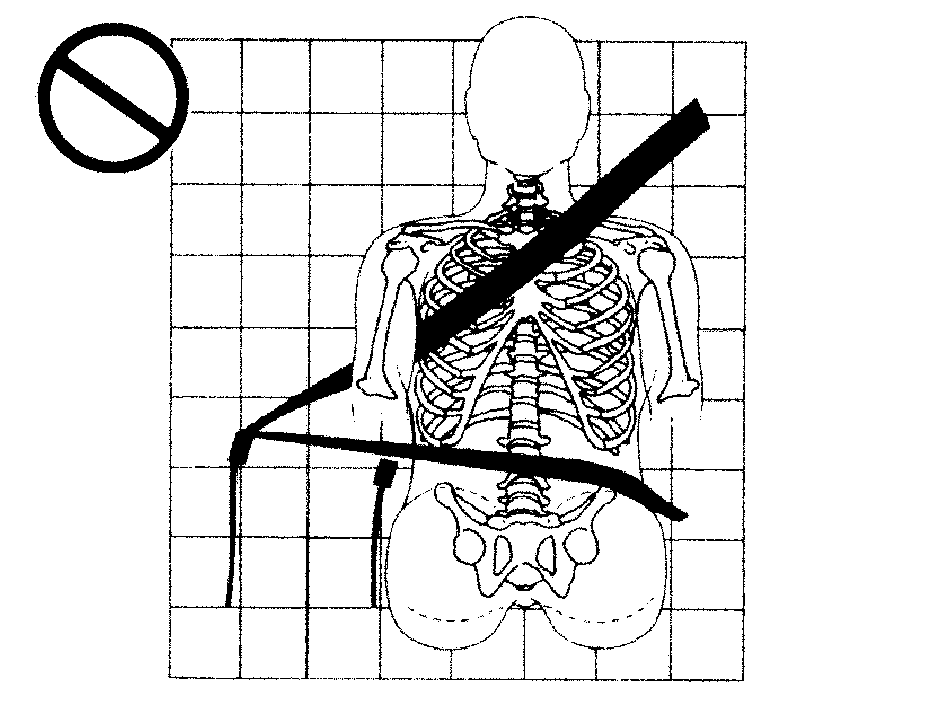
Answer:
The belt is buckled in the wrong place.
Caution: You can be seriously injured if your belt is buckled in the wrong place like this. In a crash, the belt would go up over your abdomen. The belt forces would be there, not on the pelvic bones. This could cause serious internal injuries. Always buckle your belt into the buckle nearest you.
Question:
What is wrong with this?
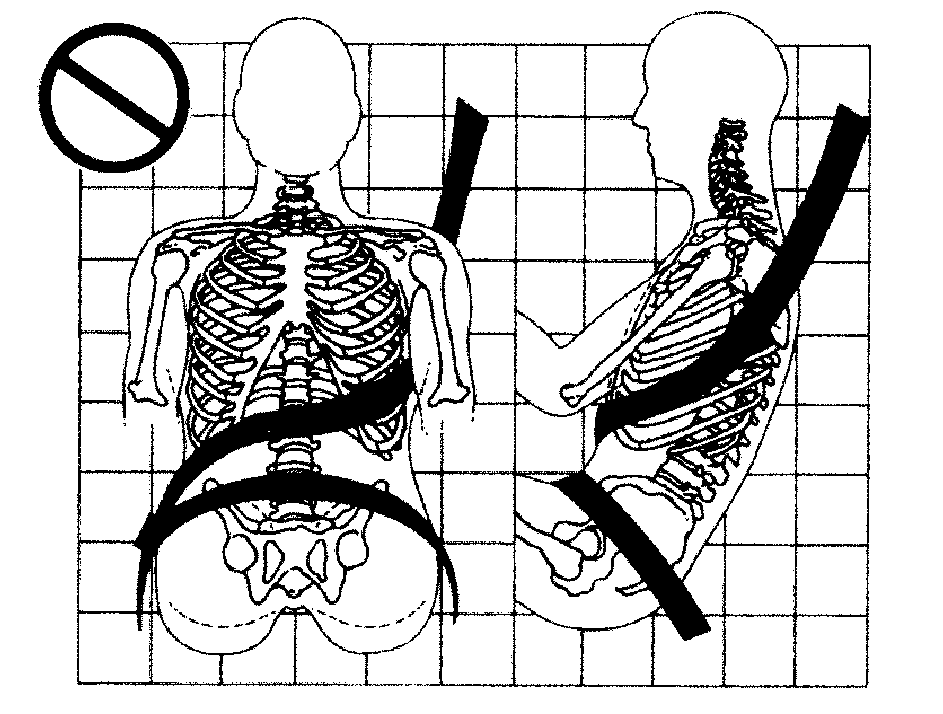
Answer:
The shoulder belt is worn under the arm. It should be worn over the shoulder at all times.
Caution: You can be seriously injured if you wear the shoulder belt under your arm. In a crash, your body would move too far forward, which would increase the chance of head and neck injury. Also, the belt would apply too much force to the ribs, which are not as strong as shoulder bones. You could also severely injure internal organs like your liver or spleen. The shoulder belt should go over the shoulder and across the chest.
Question:
What is wrong with this?
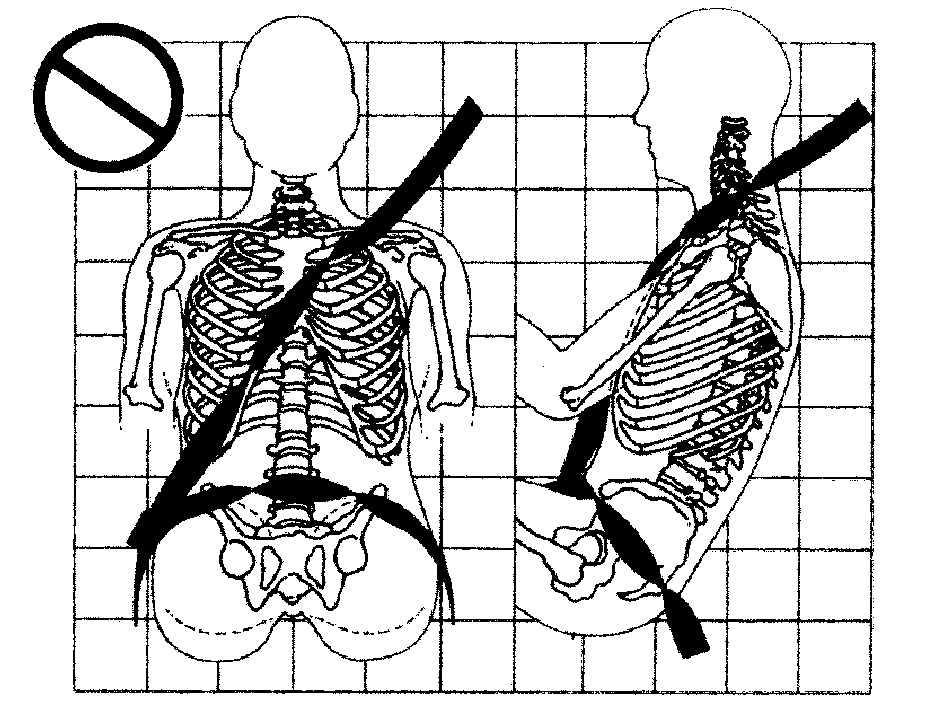
Answer:
The belt is twisted across the body.
Caution: You can be seriously injured by a twisted belt. In a crash, you would not have the full width of the belt to spread impact forces. If a belt is twisted, make it straight so it can work properly, or ask your dealer/retailer to fix it.
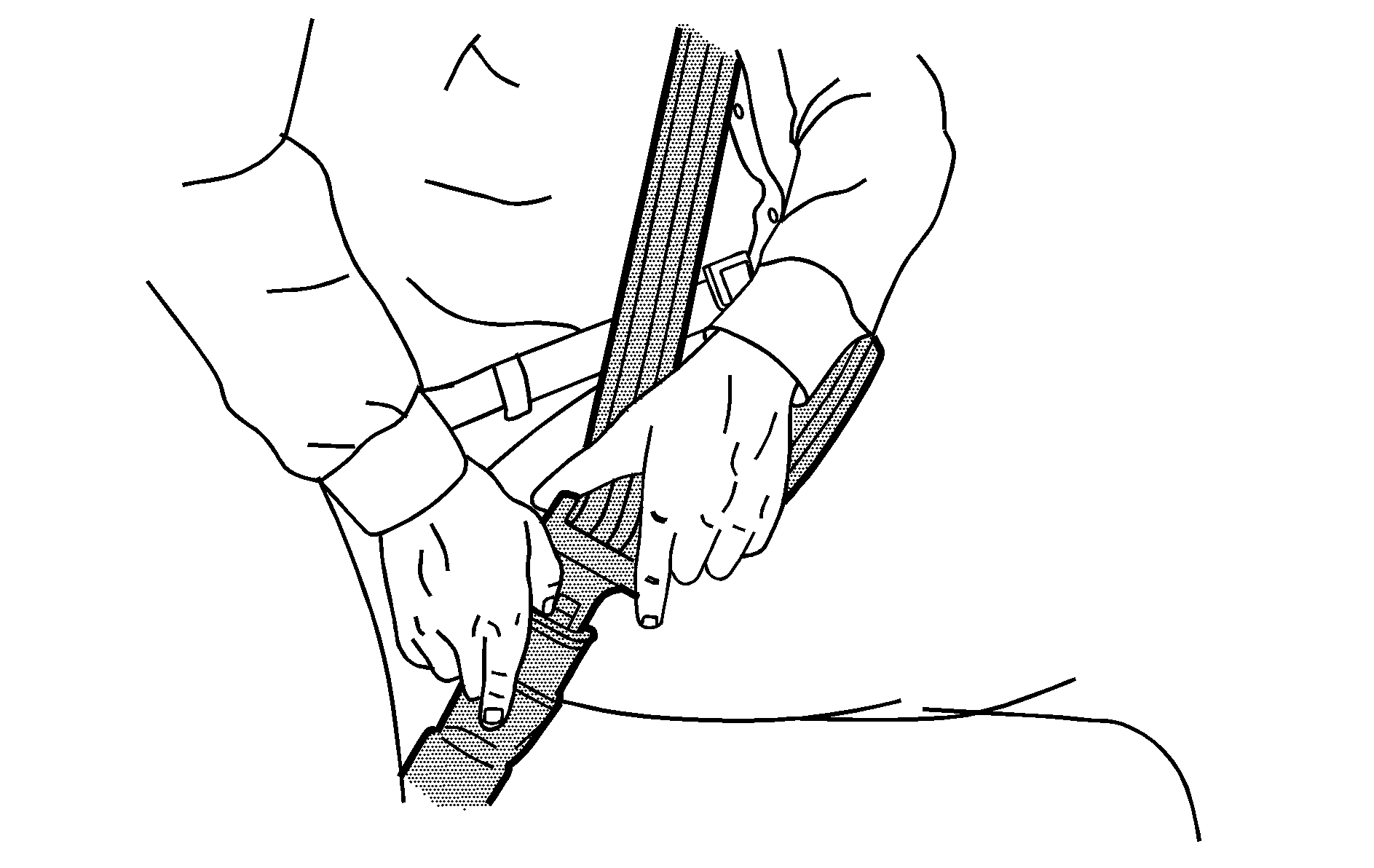
To unlatch the belt, just push the button on the buckle. The belt should go back out of the way.
Before you close the door, be sure the belt is out of the way. If you slam the door on it, you can damage both the belt and your vehicle.
